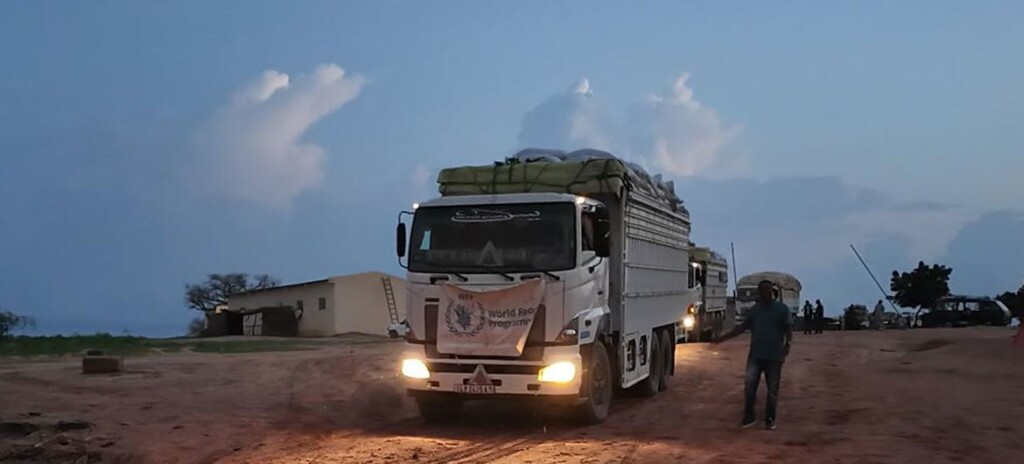USA calls for Sudan-Chad border to remain open

Convoy of aid trucks on the Adré route in August (Photo credit: WFP / Sylvain Barral)
US State Department spokesperson Matthew Miller called on the Sudanese authorities to extend the opening of the Adré border crossing with Chad beyond November 15 yesterday, following calls by US Special Envoy for Sudan Tom Perriello on Sudan’s Humanitarian Aid Commission (HAC) to “do more to facilitate UN and other humanitarian actors’ access to all parts of Sudan, including guaranteeing the Adré border crossing remains open.”
Both diplomatic actors posted their calls for action within hours of eachother on X, with Periello stating “starvation cannot be a weapon of war.” Last week, the Sudan government agreed to open the airports of Kassala, Dongola, and El Obeid to humanitarian aid traffic, while the Commissioner-General for Humanitarian Aid, Salwa Adam Benya, discussed the humanitarian situation in Sudan with the Deputy Secretary-General of the United Nations, Amina Mohammed, in New York.
Miller expressed Washington’s concern about bureaucracatic delays that are preventing the arrival of important humanitarian aid to millions of Sudanese people in dire need of assistance. He stressed that the unhindered arrival of humanitarian aid to Sudan is crucial to saving lives.
While aid has reached new parts of the country, for the first time since the outbreak of the war, the HAC is placing bureaucratic obstacles in the way of relief convoys, said Periello.
On Saturday, Sudan’s Finance Minister Gibril Ibrahim called for the immediate closure of the Adré border crossing with Chad, on the premise that “the route is used to supply the paramilitary Rapid Support Forces (RSF)”.
“The West and its organisations have worked hard to open the Adré crossing for humanitarian purposes, so that it would turn into a main crossing to support the militia with lethal weapons,” said Ibrahim.
His statement followed a damning investigation published by The New York Times on September 25, detailing how the United Arab Emirates (UAE) is smuggling weapons across the Chad-Sudan border under the guise of the humanitarian aid organisation and counterpart of the Red Cross, Emirates Red Crescent.
“Eager to cement its role as a regional kingmaker, the wealthy Persian Gulf petrostate is expanding its covert campaign to back a winner in Sudan, funneling money, weapons and, now, powerful drones to fighters rampaging across the country, according to officials, internal diplomatic memos and satellite images,” wrote journalists Declan Walsh and Christoph Koettl.
According to US officials, who remained anonymous as they were not authorised to speak publicly about the intelligence, the UAE is using Amdjarass airport to fly advanced military drones to provide the RSF with battlefield intelligence and escort weapons shipments to fighters in Sudan to keep an eye out for ambushes. Amdjarass airport is 600 miles east of N’Djamena, capital of Chad.
October 13, Radio Dabanga reported that humanitarian and relief NGOs operating in North Darfur lamented that security issues and an ongoing supply blockade by the RSF.
In an interview with Radio Dabanga in September, Mira Nasser, the Sudan Communications and Media Director of the United Nations children’s Fund (UNICEF), said that “there are limits to what assistance can achieve without real peace and security.” She highlighted that developments such as the reopening of Sudan’s Adré border present an opportunity to deliver aid, however, an immediate ceasefire is essential to enable humanitarian relief organisations reach those affected by the war.











 and then
and then